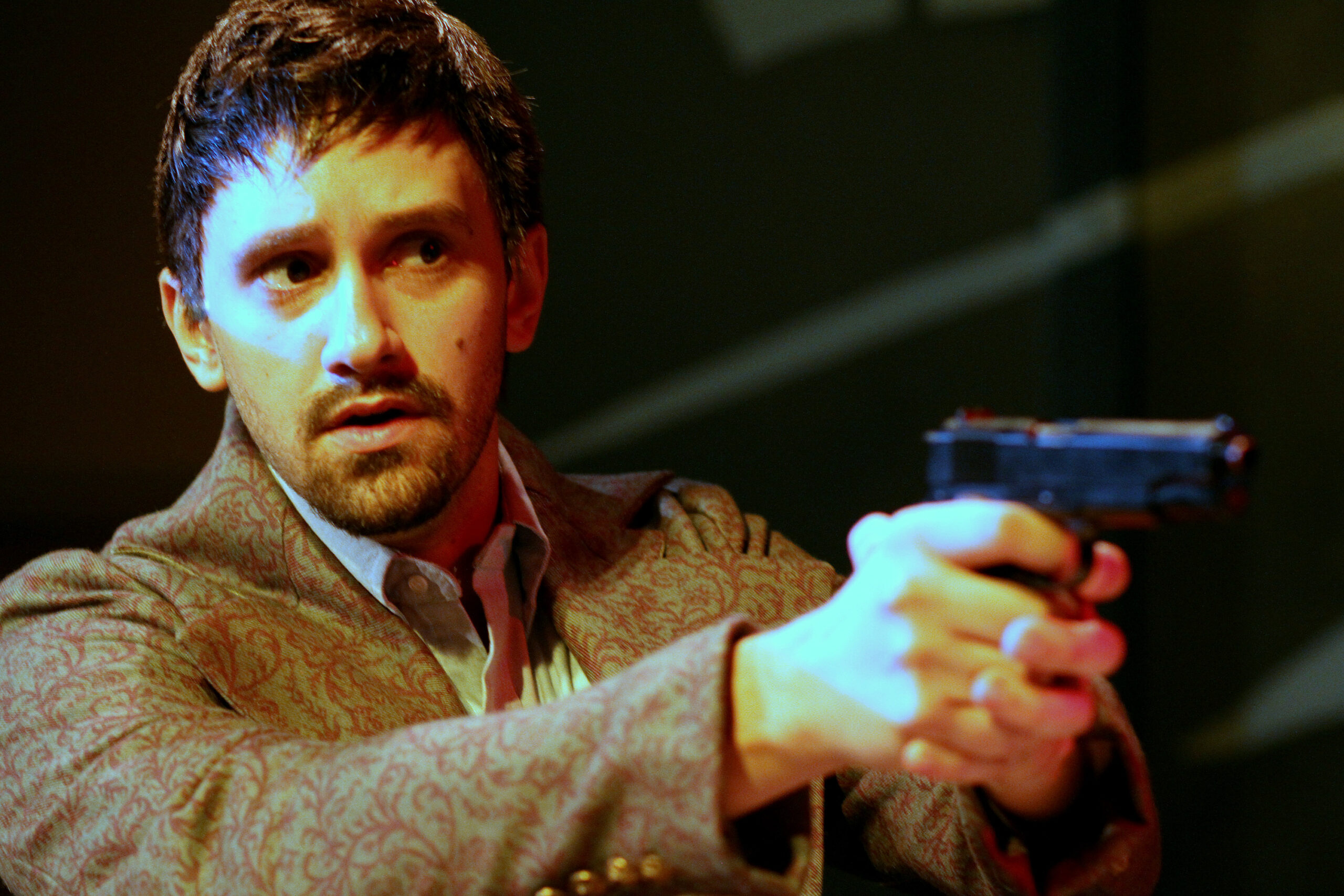HOLLYWOOD—It’s a thankless job. Playing understudy to the star, playing second fiddle to the top banana. Being on the B Team, sitting on the bench, waiting to go on, while the whole time, thinking oneself better than those getting to perform. Being the wallflower, waiting to be asked to dance, while fearing your muscles might atrophy in the meantime. Who hasn’t been there?
It’s been said that we shouldn’t compare ourselves to others, that in so doing, we’ll never be happy. Someone always has more. But in the age of social media, we know all too well that someone is always in your face, smiling, having the time of their life. It’s hard not to be bitter. In Theresa Rebeck’s crisp three-character play, “The Understudy,” about an understudy rehearsal of Kafka’s newly discovered masterpiece, the characters are far from immune to bitterness. They are steeped in it, despite declarations to the contrary.
The understudy, Harry (Braxton Molinaro), thinks he’s better than the half-rate “duck-and-jump” movie star he’s covering, while the B-list actor, Jake (Max Bunzel), is dissatisfied that he is under the billing of the A-lister, who’s bringing in the audience; the stage manager, Roxanne (Magdalene Vick), gave up her acting career altogether out of frustration trying make any money at all. When she comes to work to do the single run-through with the understudy, to find he’s the ex-fiance who jilted her, left her in the lurch a few weeks before the wedding six years ago, no, she’s not bitter. She’s just prickly.
There are actually three additional characters, if you count “Laura,” the technician in the lighting booth, presumably steeped in a pot-filled haze, “Dean,” the producer, and “Bruce,” the A-lister. All three unseen characters, in a Kafka-like turn, in absentia have more control over the lives of the three on stage, than the characters have over their own lives.
The action takes place, as it would in the actual rehearsal, on the stage, and in the audience. The stage manager is often cringing in her seat or in the aisle, crinkling her water bottle, from her spot as proxy director in the audience. She’s on her headset, calling out cues that are blatantly bollixed up by Laura, while the audience becomes immersed in the process. We embrace the darkened ambiance (lighting design by Kelley Finn), but we don’t always “see” the actors, much as one wouldn’t in a rehearsal process; the actors often speak upstage to each other, switching from talking intimately to the audience, sometimes sotto voce, then, in turn, theatrically loudly. It is raw and fun and a bit uneven as a result, but comfortably so.
With its own nod to Kafka, “The Understudy” is anything but pretentious or off-putting, and the actors clearly relish the opportunity to cover such territory. The casting is clever in that both Molinaro and Bunzel resemble each other in a way suitable to imagine them covering the same character on stage. They have a similar stature, and both have dark hair and 5 o’clock shadow scruffy beards. But their similarity ends there. Bunzel’s Jake is the tauter, more angular version, his clothing more appropriately pressed, his body more defined, while Molinaro is looser, a bit disheveled, and becoming more unwound as the play progresses.
Harry looks like the wounded puppy, while Jake struts his stuff. Posture, and attitude, make all the difference. For all his belief in his own abilities, an overlooked, yet superior, actor, Molinaro’s Harry sits on the stage box and his legs dangle like a little boy’s, unable to reach the floor, while he looks at Jake, the big man on campus, comfortably, strikingly, perched on his box, ready to spring forth with confident energy. The balance works and is capitalized upon in this production by Laura Henry’s precise directing.
There’s a dizzying effect to her staging, as the actors circle around the parameters, unsuccessfully trying to escape their fate, but clearly thriving under the challenge. The pot is continually stirred by the hand of the frustrated, begrudging Roxanne, deftly played by Vick, who wins over Harry, Jake and the audience in her charmingly restrained delirium. The whirlwind is effectively complimented by Chesley Walsh’s original song, “Spin,” sound design by Jonathan Sokolow, and projection by Nathan Connelly.
Fighting the classic show-within-a-show conflicts that arise, the show must go on, and the actors in the show must learn from each other, recognize and acknowledge each other’s strengths, and choose whether to “duck and cover,” or simply enjoy the dance. With Theresa Rebeck’s somehow wittily dense dialogue, “The Understudy” is successfully fast-paced and entertaining; it’s a show for all, whether familiar with the role of an understudy, or, familiar with having to study under the tutelage of a seemingly unworthy mentor.
The Understudy by Theresa Rebeck
A Working Stage Collaboration Directed by Laura Henry
With Max Bunzel, Braxton Molinaro and Magdalene Vick.
Set Design by Ryan Wineinger & Sam Ogden
Projection Design by Nathan Connelly
Lighting Design by Kelley Finn
Costume Design by Whitney Oppenheimer
Original Song “SPIN” by Chesley Walsh
Stage Manager Ashley Clark
DATES: NOW EXTENDED THRU APRIL 3
TIMES: Friday & Saturday at 8 p.m.; Sunday at 3 p.m.
ADMISSION: $15
TICKET INFO: Reserve online at www.theunderstudy.brownpapertickets.com or call (800) 838-3006. LOCATION: Working Stage Theater, 1516 N. Gardner Street, Los Angeles, 90046.







